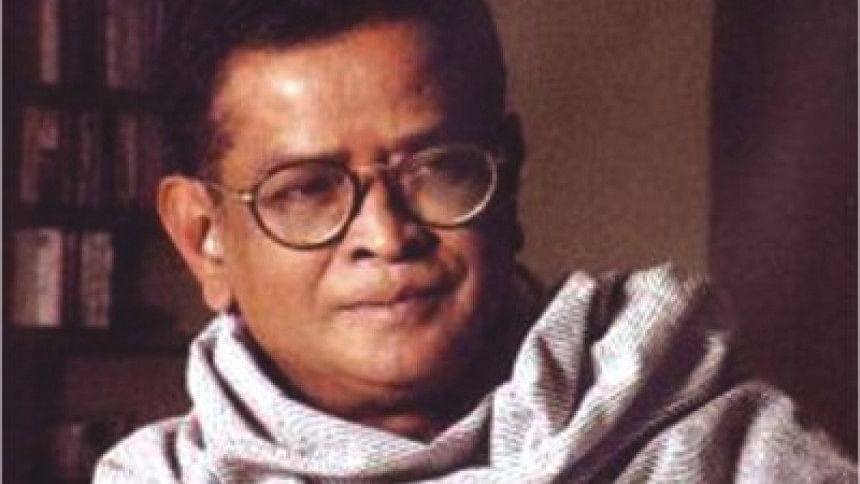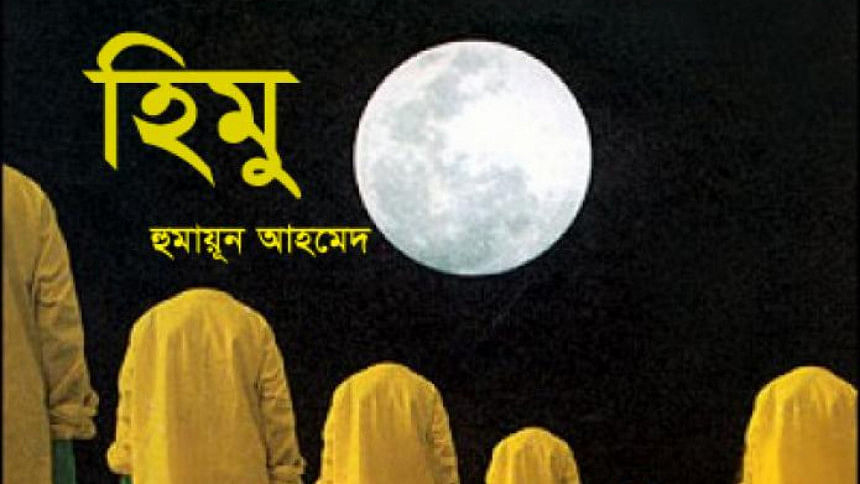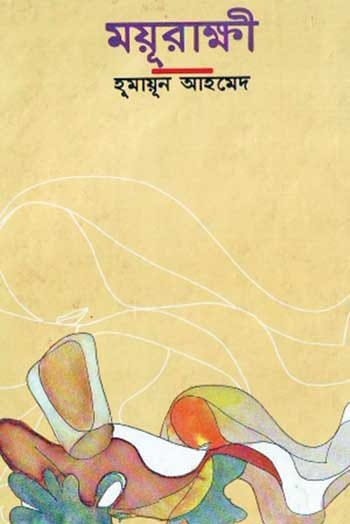Himu ki mahapurush?

For more than three decades, Misir Ali, the Sherlock Holmes of Bengali fiction, has captivated readers. Fans of Humayun Ahmed novels know well the unassuming fellow who solves mysteries that confound the average person. Misir Ali is no less a hero than superman, no lesser a vigilante than the dark knight that haunts Gotham. A masked crusader or a briefs-wearing half-alien would hardly be believable in a place like Dhaka. What Dhaka needed was someone who resembles us, shares our fantasies and follies. Someone who, in a society that is crippled by hierarchy, tradition, and custom, lives the life of a person truly free.
Misir Ali is the unorthodox hero that stole our hearts.
But for all the brilliance of Misir Ali, Humayun Ahmed's other popular character, Himu, became the fan-favorite. Himu has none of the intelligence or powers of deduction of Misir Ali. Himu says the wrong thing at the wrong time. He helps people, but only after causing undue chaos and misery. A perennial philanderer, Himu walks around with not much to do, barefoot, in a city that actively despises people like him. Never being able to hold down a job in his life, Himu does not quite fit into this city that celebrates obedience. Why then is Himu more popular than the wunderkind Misir Ali, who, at least on paper, should be the clear favourite? What is Himu's charm?

To understand his popularity we need to answer two questions first. What do people desire? How does society abet or discourage such desires?
People's desires are, of course, heterogeneous. One person's dream is another's anathema. The desires that people vocalize, they would often find themselves deeply unsatisfied if they did achieve them. Happiness, too, is not a simple equation. We often find that we do not understand ourselves well enough to know what would bring us happiness. We do not understand that the pleasure we are looking for lies in something more fundamental. What Himu and Misir Ali both accomplish is that they make the reader witness the fulfilment of this fundamental desire: living as our authentic selves.
If one is asked what they want in life, what their deepest desires are in society, one might say they want to help others, be a respected member of society, and leave a legacy worth remembering. Others, more truthful, may say they want wealth, power, beauty, respect, and importance. But why do people want these things? All of the above allow us to rid ourselves of society's bind, the anxieties of poverty, and the leer of expectation. Each person is constantly judged as to how well off they are, how educated, how beautiful, how accomplished, and altogether, how successful. Very few people live how they wish to live their lives. Very few of us have control over our time, our living conditions, who we answer to, and who dictates our daily existence. Whatever form our desires may take, underneath it all lies the desire to become free. Free from the boot of a boss, or familial and social expectations, to do what we wish to and how we wish to. To control ourselves the precious time we have in this one life. This fundamental desire lies at the heart of our competitive nature in society, this rat-race where the winner takes all.

Although both characters are discussed as the antithesis of the other—Himu an idealist, bohemian, an ascetic to Misir Ali's coldness and demure rationalism—in a deeper sense, both characters have achieved authenticity. Having no obtrusive bosses, no parents, no families to provide for, and most importantly, no real desire to prove their worth to others. Neither Himu nor Misir Ali particularly care about reaching the great heights of corporate life, or securing a cushy government job, or amassing wealth to rid oneself of the anxieties of poverty. Whereas regular people prefer order, the two characters revel in uncertainty. In short: Himu and Misir Ali operate outside of the rat-race. They simply refuse to participate in it.
Misir Ali, although once a professor, has since relegated himself to a life of the mind and of solving mysteries that he deems interesting. First appearing in the novel Debi in 1985, Misir Ali is the first form, an old testament Himu. He is the more obvious protagonist among Humayun Ahmed's characters—a lighting fast mind inside an unassuming exterior, connected with the top brass of society through a myriad of favours and from a reputation that precedes himself—Misir Ali is what we all wish we were. His natural brilliance allows him to be defiant in a way that readers could only envy. Who has not finished a Misir Ali book and tried to deduce a stranger's life from what they wear? Who has not wished they could live a life just as careless, wandering around listening to ghost stories? It is this fantasy that lulls us, to construct a reality in which we could be ourselves. Where we could be brilliant and independent.

Misir Ali's life is nearly impossible to emulate, but not as impossible as that of Himu. The latter first appeared in 1990 in the novel Mayurakkhi, five years after Misir Ali's debut, as the penultimate formation of what Humayun Ahmed achieved with Misir Ali. Himu is authenticity personified. He is defiance distilled. Misir Ali at least had an explanation as to how he achieved his independence. Himu does not pretend to be a genius. Himu's world is all his own and he achieves miraculous feats within it through the sheer magnetism of his personality. Himu appeals to readers more because his powers are purely supernatural and inexplicable. Like a pir whose inner world we do not understand, we are left transfixed by his miracles. He answers to no one. Even the most feared institution in this country, the police station, Himu frequents as if it is an old friend's house. He is friends with ministers, beggars, police officers, college students alike. Himu's reality is truly classless.
One can see how a life such as Misir Ali's or Himu's would be nigh impossible, except perhaps by Humayun Ahmed himself. His unprecedented popularity netted him both the wealth and social clout required to live as a bohemian. When people talk about seeing Humayun Ahmed's own personality in his characters, it is not in Misir Ali's intelligence, or Himu's sense of humour. Rather it is in the authenticity which each of them held in the highest regard.
Himu's father aspired to train his son to be a Mahapurush, like other parents train their children to be doctors or engineers. Unlike all other men, Himu was to be a person who can harness and live a philosophy greater than being driven by base desires. A man who would not base himself to the rat race. Someone unconcerned with the material successes of life, or the expectations of those who do not truly care. One who can listen to one's own heart and answer only its whims. Himu was a dire failure by all measures of success in our society. But did he become a Mahapurush?
Rasim Alam is a graduate student at Harvard University studying public policy and data science. Twitter: @rasim_alam

 For all latest news, follow The Daily Star's Google News channel.
For all latest news, follow The Daily Star's Google News channel. 



Comments